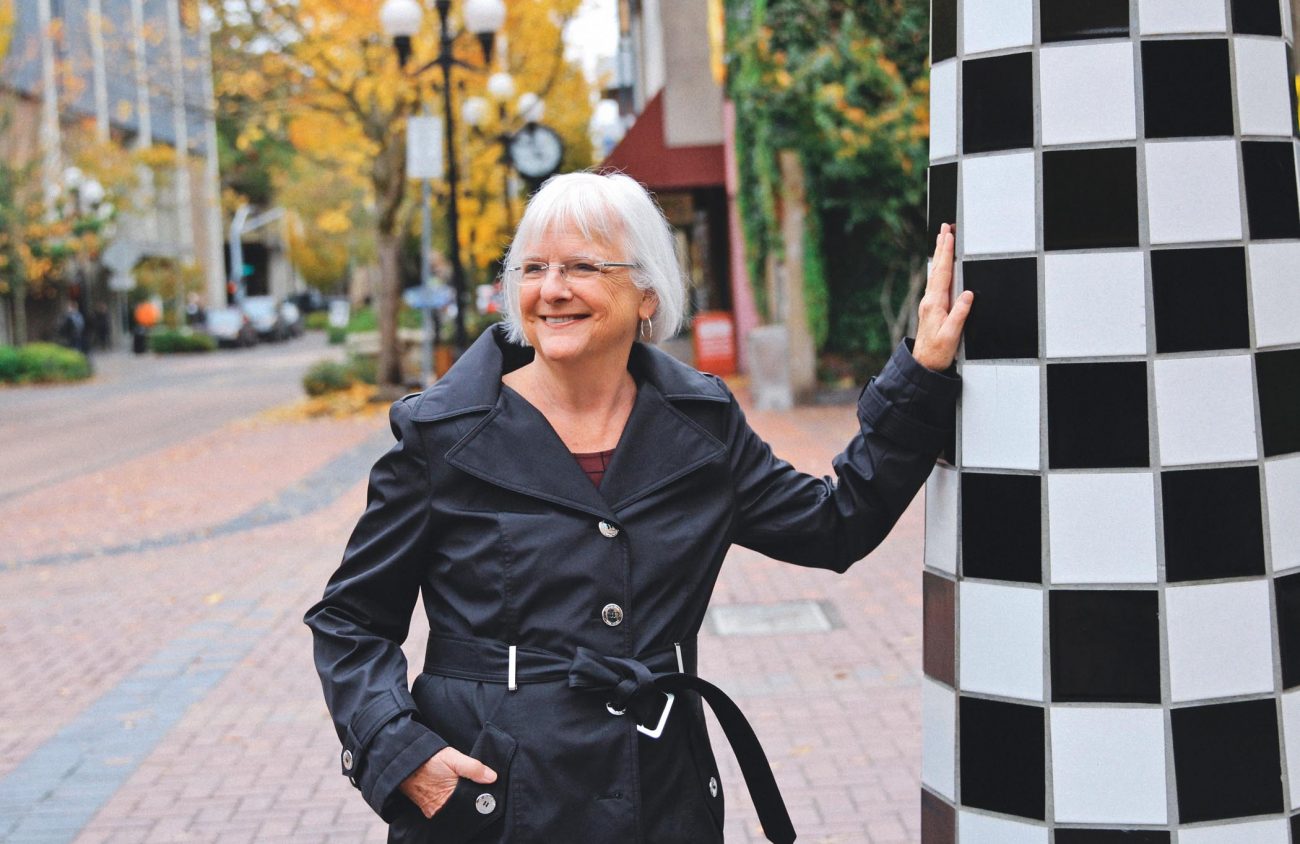Political leaders leave legacies — Eugene’s first woman mayor Ruth Bascom is remembered as the “bicycling mayor” after establishing bike and pedestrian paths around town during her tenure from 1993-96.
As now-former mayor Kitty Piercy winds down her stint from January 2005 to January 2017 as Eugene’s second-longest serving mayor, many have wondered what her legacy will be.
If you ask Piercy, she will tell you her legacy is “the triple bottom line” and a belief that a city can be both pro-business and pro-environment: economic development, social equity and natural resource protection. She points to the filling of the downtown pits, a now-thriving downtown and to dialogue over the controversial West Eugene Parkway — the four-lane expressway through West Eugene that never was — as examples of that.
She also points to Eugene’s role in paid sick leave in Oregon, the city’s work on climate change, taking stances on issues such as the Standing Rock pipeline protest and adopting a police auditor position as positive steps forward during her tenure in office.
Critics will tell you Piercy’s legacy might be the drawn-out City Hall saga with no end in sight, and she doesn’t dispute that City Hall is a disappointment. In a goodbye talk to the City Club of Eugene Dec. 9, she pointed to “the quality of Capstone, the endless saga of the city hall, the failed school levy, the loss of the Eugene Celebration and the continuing lack of a public shelter,” as examples of problems not yet solved.
It’s perhaps Piercy’s method of solving problems that is her legacy. In Eugene’s form of government with a strong city manager and weaker council and mayor, one of the mayor’s functions is to break ties on the council.
Despite the fact that when Piercy took office, she had to assert herself and her right to be in City Hall — to the extent, she said in her City Club speech, that she “was barely tolerated at City Hall and encouraged not to be around much,” — she also doesn’t have much criticism for the strong city manager form of government, which she says is common in smaller cities.
Piercy, who started her political career in the Oregon Legislature after working for Planned Parenthood, says her goal as mayor was to ensure that council members heard one another, even if they didn’t necessarily agree.
Rather than use her tie-breaking position as a sledgehammer, Piercy says she sought, if not consensus then an understanding of differing viewpoints. Though she says, “I was never afraid to break a tie.”
That win-win and common ground focus is not popular in the current political climate that has resulted in divisive President-elect Donald Trump taking office, but reflecting on the recent presidential election Piercy says, it was important to her to “use the power I have in the best way possible.”
And while Hillary Clinton may have failed in her effort to break that last glass ceiling, Piercy sees hope in the presence of the group Emerge Oregon, which trains progressive female candidates for office, a supportive community that wasn’t around when she was tapped to run for mayor and before that for the Legislature.
Moving forward, Piercy says she will take some time to breathe after leaving office Jan. 4. Wrapping up her term, Piercy tells EW: “I laughed a lot, I worked really hard and I took it really seriously.”
